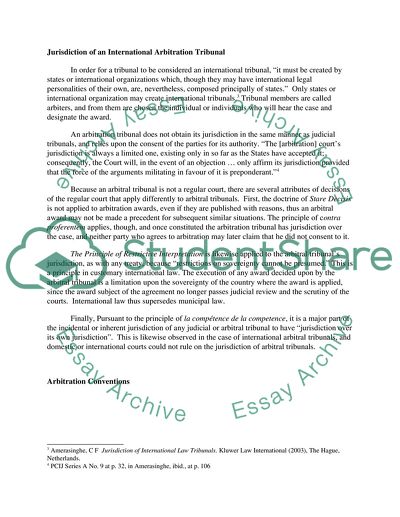Cite this document
(The Limited Jurisdiction of International (Investment) Arbitral Research Paper, n.d.)
The Limited Jurisdiction of International (Investment) Arbitral Research Paper. Retrieved from https://studentshare.org/law/1747205-party-selected-judges-and-arbitrators-in-international-legal-proceedings-their-role-independence-desirability-and-compatibility-with-the-general-principles-of-law-governing-procedure-before-international-tribunals
The Limited Jurisdiction of International (Investment) Arbitral Research Paper. Retrieved from https://studentshare.org/law/1747205-party-selected-judges-and-arbitrators-in-international-legal-proceedings-their-role-independence-desirability-and-compatibility-with-the-general-principles-of-law-governing-procedure-before-international-tribunals
(The Limited Jurisdiction of International (Investment) Arbitral Research Paper)
The Limited Jurisdiction of International (Investment) Arbitral Research Paper. https://studentshare.org/law/1747205-party-selected-judges-and-arbitrators-in-international-legal-proceedings-their-role-independence-desirability-and-compatibility-with-the-general-principles-of-law-governing-procedure-before-international-tribunals.
The Limited Jurisdiction of International (Investment) Arbitral Research Paper. https://studentshare.org/law/1747205-party-selected-judges-and-arbitrators-in-international-legal-proceedings-their-role-independence-desirability-and-compatibility-with-the-general-principles-of-law-governing-procedure-before-international-tribunals.
“The Limited Jurisdiction of International (Investment) Arbitral Research Paper”, n.d. https://studentshare.org/law/1747205-party-selected-judges-and-arbitrators-in-international-legal-proceedings-their-role-independence-desirability-and-compatibility-with-the-general-principles-of-law-governing-procedure-before-international-tribunals.


